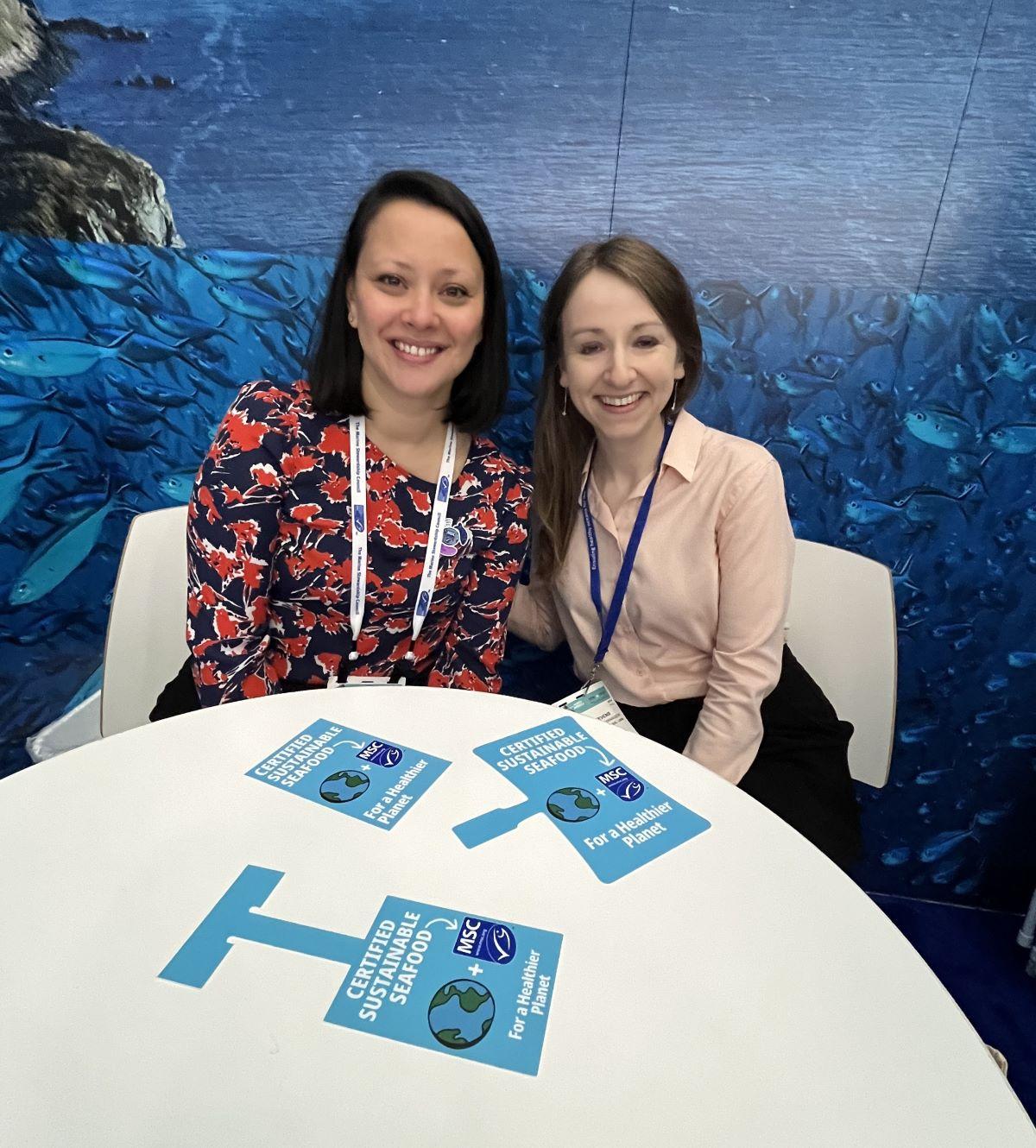Seafood’s Strong Sustainability Message
COLUMN: AHEAD OF WHAT'S NEXT
As evidenced by my recent visit to Boston last month for Seafood Expo North America (SENA) 2024, the seafood industry continues to make strides in the area of sustainability. One of the organizations propelling this forward momentum is the international nonprofit Marine Stewardship Council (MSC), whose booth I visited for a chat with Kristen Stevens, senior marketing manager, U.S.
“What’s driving the conversation quite a bit is climate change and environmental sustainability, and there’s an expectation of consumers that they don’t have to choose between something good for them and good for the planet,” noted Stevens.
[RELATED: How Grocers Can Unlock the Shopper Sustainability Opportunity]
Signposts Ahead
Asked about the best retail strategies for communicating sustainability at retail, she advised: “What I’ve seen work the best is really simple stuff. So, simple messaging offline, like at brick-and-mortar stores, that signpost some of the different labels to look for and what they mean: Here’s our commitment to the ocean; look for these labels. That’s one way. And then we’re telling retailers more and more to not forget about online shoppers, too, because online shoppers just have a little bit more time to take in those messages and are a little bit more deliberate with their shopping. And so again, that simple signpost: Here’s our sustainability offerings, here are some of the labels to look for. That’s what we tell retailers quite a bit, to just not forget that. Just simple messaging.”
Beyond that, the MSC directs consumer education campaigns; works with influencers, dietitians and chefs “to demystify seafood and make it more approachable,” as Stevens explained; publishes research; and has recently updated a toolkit to help brands sell seafood online, among other efforts.
In particular, she revealed that the MSC was gearing up for a campaign taking place throughout Earth Month (April) in such key U.S. markets as Los Angeles, New York and Philadelphia. The effort will focus on “reaching people as they’re in their shopping journey” through digital and in-person marketing. The organization is also introducing an in-store marketing kit that its partners will be able to download, containing wobblers, shelf talkers, aisle blades and more “to be able to really signpost all the sustainable seafood that is already in their stores,” added Stevens. “Most retailers in the U.S. have MSC-certified product. So we want to make it easier for them to signpost it for consumers to be able to find it. And we’re actually launching that during Earth Month, even though it’s evergreen messaging [that can] be used year-round.”
Preparing for FSMA
Since a huge part of sustainability is knowing where product comes from, a March 11 SENA panel moderated by Richard Stavis, of the Global Dialogue on Seafood Sustainability (GDST), featured Steve Philips, from Wegmans Food Markets, and Daisy Berg, from New Seasons Market, who spoke about their respective retailers’ paths to traceability in accordance with Section 204 (the Food Traceability Rule) of the Food Safety Modernization Act (FSMA), which gives companies until Jan. 20, 2026, to become fully compliant. While Berg found that most vendors were unprepared for traceability under FSMA, Philips saw the opportunity to go beyond mere compliance to add due diligence in regard to environmental and social measures such as packaging reductions.
[RELATED: How Traceability Shortcuts Can Prove Costly to Food Safety]
These efforts could be greatly enhanced by standardized digital systems to collect and disseminate such information in a streamlined manner. “A world with standards is definitely easier on everyone,” asserted panel member Jason Berryhill, of Wholechain, which offers blockchain-based supply chain traceability.
Another panelist, Heath England, of full-chain seafood traceability provider Trace Register, was quick to note that traceability was still in its infancy in many ways. “We’re still talking about the ‘how,’” he observed. “We really need to nail that down. GDST can then layer the ‘what’ on top of that.”







